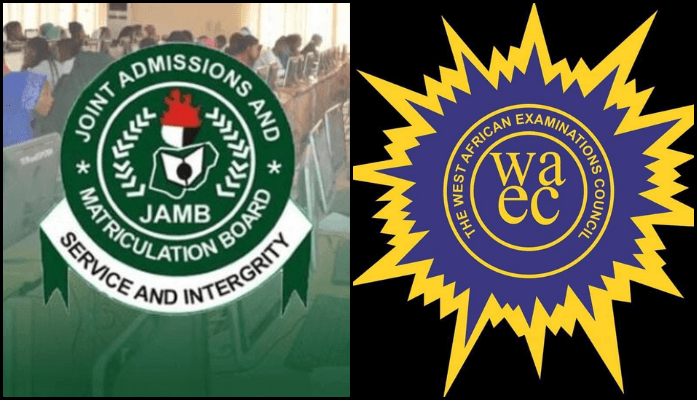EDUCATION

WAEC, JAMB GLITCHES SPARK OUTRAGE, RAISE FEARS OVER CREDIBILITY OF EXAMS
Stakeholders in Nigeria’s education sector have expressed deep concern over the recurring technical glitches that rocked both the Joint Admissions and Matriculation Board (JAMB) and the West African Examinations Council (WAEC) in 2025.
The lapses, which led to confusion, mass failures, and even the re-release of results, have raised serious questions about the credibility and reliability of Nigeria’s external examination bodies.
The first wave of controversy came from JAMB, where nearly 380,000 candidates were affected due to an unapplied software patch on servers in Lagos and the South-East. This glitch scrambled results, forcing the board to order resits for thousands of students. JAMB Registrar, Prof. Is-haq Oloyede, confirmed the scale of the problem but dismissed conspiracy claims, describing it as a technical failure.
The House of Representatives Committee on Basic Education, however, disagreed, saying preliminary findings suggested the error was more of a human failure than a purely technical one.
Shortly after, WAEC also came under fire when it released the 2025 WASSCE results, showing a mass failure in English Language. The council later admitted to “technical bugs” linked to its newly introduced paper serialisation security feature. Results were withdrawn, the result-checker portal was suspended, and candidates were urged to re-check their updated scores.
Parents, students, and experts have since criticised both examination bodies. Some parents described WAEC’s decision to review results as “inefficiency” and a move that could erode public trust. Others urged the government to focus on strengthening schools and hiring quality teachers rather than making after-the-fact adjustments.
A student who shared his experience revealed that his English result changed from a D7 to a B3 after the glitch was fixed — a shift he described as shocking, even though it worked in his favour.
Education analysts say that the situation, if left unchecked, could tarnish Nigeria’s examination system's international reputation. Tech experts like Echezona Chinedu called for independent audits, better quality assurance, and accountability measures, warning that the credibility of these exams must not be compromised.
Meanwhile, the Federal Ministry of Education has reassured Nigerians that reforms are underway. Both WAEC and NECO are set to roll out Computer-Based Testing (CBT) for objective papers starting in November 2026, in an effort to curb malpractice, prevent leaks, and restore trust in the system.
For now, however, parents, students, and educators alike are left asking: Can Nigeria’s most important exams be trusted?
"This represents a significant development in our ongoing coverage of current events."— Editorial Board









